New mental health clinic extends care, compassion to LGBT community
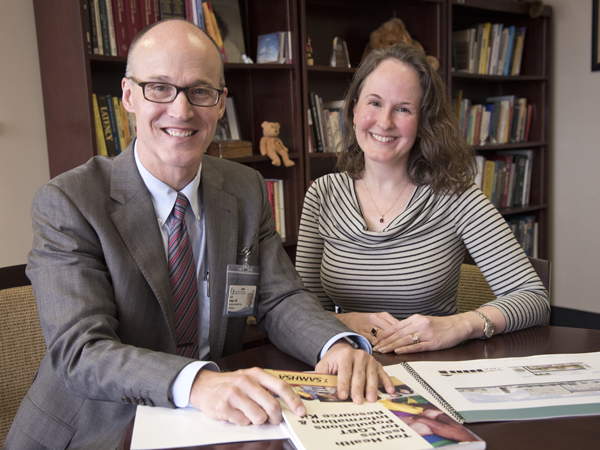
Published in News Stories on August 17, 2015
When health-care professionals say they can't help you, you might assume it's because of what you have, not because of who you are.
But, if you're a member of the LGBT community, you can't be sure.
"There is a perception that some physicians are homophobic and that makes the patient reluctant to come out," said Dr. Scott Rodgers, chair of the Department of Psychiatry and Human Behavior.
"Staying hidden is an unhealthy way of living your life."
For that reason, Rodgers' department in July launched the LGBT Clinic at the Jackson Medical Mall Thad Cochran Center - a pioneering treatment center that will help fill a gap in mental health services for Mississippi's lesbian, gay, bisexual and transgender community.
Apparently the first of its kind in the state, it's a project of UMMC's new Division of Gender, Sexuality and Health, directed by Dr. Kim Gratz, a School of Medicine professor and researcher who is overseeing a new LGBT Health Program, as well as a Women's Health Program.
The LGBT Clinic is offering psychiatric care as well as psychotherapy to a population making up 2-5 percent of the state's inhabitants, by Rodgers' estimate.
"We want them to know they can come to a place that is accepting and where they can get competent care," Gratz said.
To that end, she and Rodgers will work with another pacesetter in this field: Dr. Leandro Mena, associate professor of medicine in the Division of Infectious Diseases.
"We're building on the work he's done," Gratz said.
That includes his work as medical director of the Open Arms Healthcare Center, which specializes in primary care focused on the health needs of LGBT populations; established by the nonprofit community organization, My Brother's Keeper Inc., it also offers the services of a clinical psychologist and referrals.
LGBT issues have not been ignored at the Medical Center, Gratz said, but the stress was on physical, rather than psychological needs.
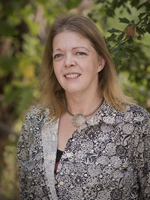
Thompson
"Until Dr. Mena and Open Arms, there was nobody," said James Thompson of Jackson, who began the transition from female to male long before Open Arms' appearance in 2013.
"I was fortunate to have the support of my family, but there are so many people whose families write them off when they choose to transition, and they have to go through that without any therapy or care for their mental health."
That's because some medical professionals will write them off as well, Mena said. And not just people who are transgender.
"We live in an area of the country that is socially conservative. Our health-care professionals reflect that conservatism."
Although she has not sought counseling, Jenny Breaux of Jackson has sought medical care.
"Two gynecologists have told me that my life is wrong and they pretty much couldn't help me," Breaux said. "One told me she was there to deliver babies, to be a part of the miracle of life, and because of the road I was taking as a lesbian she didn't see the point in being my doctor."
Why reveal your identity at all then?
"Because, when you go to a physician, there needs to be trust there," Breaux said. "This needs to be about you, the patient. I don't see how your physicians can completely serve you if they can't accept you as you are."
In fact, professional medical organizations recommend that physicians ask patients about their gender identity, just as you would their age and race, Gratz said.
For society in general, there's a practical reason for encouraging LGBT patients to be frank - this can help prevent the spread of HIV, said Mena, who co-authored a 2008 Centers for Disease Control and Prevention study that showed this to be the case.
People who are reluctant to "come out," Rodgers said, "don't have the conversations they need about safe sex practices.
"But you have to be strong to self-identify. There's an exquisite sensitivity to any clues that another person is homophobic. For instance, in a visit to a physician's office, you would notice the types of photos displayed, certain icons.
"It's exhausting.
"And while the majority of LGBT individuals maintain great mental health, an increased social stigma makes them more vulnerable."
LGBT individuals, particularly those with a conservative upbringing, tend to have more mental health problems, Mena said, as they struggle with their sexual identity and their sense of right and wrong.
In its 2 ½ year history, Open Arms has recorded 171 initial visits for its mental health services alone, he said. The population has a history of trauma - sexual abuse, discrimination, homophobia.
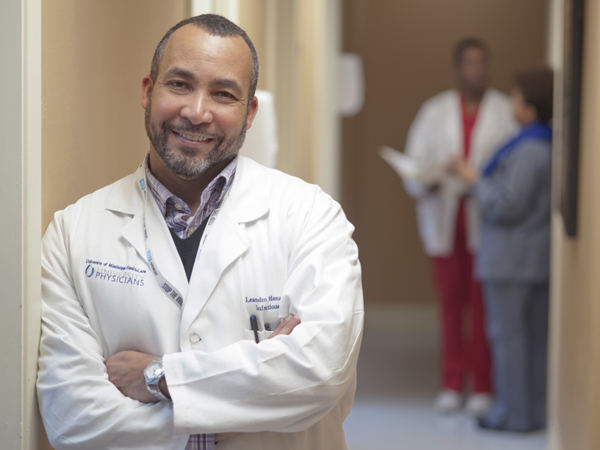
Mena
"At Open Arms, we have more demand than we have the capacity to serve," Mena said.
Although it was conceived as a response to the HIV epidemic affecting black men who have sex with men and transgender women, Open Arms now sees a patient load that is 35 percent heterosexual.
And the center's very first patient was a 50-plus lesbian white woman who was on a waiting list for a heart transplant, Mena said.
"She told us that for years she had been looking for someone who would give her counseling. People in the LGBT community have few choices. We see patients from Mobile, Hattiesburg, Starkville, New Orleans, Memphis, the Gulf Coast.
"So we welcome with great excitement the efforts of Dr. Gratz and Dr. Rodgers with their clinic."
That clinic will also serve as a research center for LGBT health, said Gratz, who will lead the research.
And it will train medical students to provide what Rodgers calls "culturally competent care for this population."
"We want the students to know the terms - 'gender identity,' 'transgender,' and so forth," Rodgers said, "and to know how to treat these patients intelligently, compassionately and thoughtfully."
For Thompson, it boils down to this: "You need to talk to people who understand."
For more information:
Faculty members and health-care providers seeking more information about the LGBT Clinic may contact Dr. Kim Gratz at KLGratz@umc.edu. Patients wishing to schedule an appointment should call (601) 984-6925.Photos
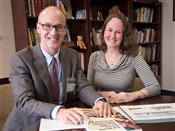 | 1c Ashley 2015.jpg High Resolution Medium Resolution Low Resolution |
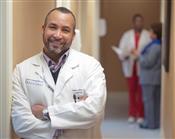 | 5 Liz Katie 2015.jpg High Resolution Medium Resolution Low Resolution |
 | 6 Soltyses 2015.jpg High Resolution Medium Resolution Low Resolution |


